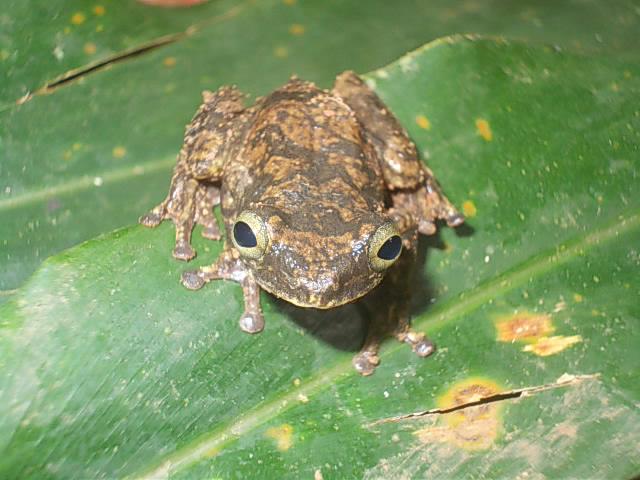David Amaning Kwarteng
Other projects
21 Oct 2013
Imminent Actions for the Conservation of the Endangered and Endemic Bobiri Reed Frog, Eastern Ghana I
6 Oct 2015
Imminent Actions for the Conservation of the Endangered and Endemic Bobiri Reed Frog, Eastern Ghana II
12 Jul 2018
Imminent Action for the Conservation of the Endangered and Endemic Bobiri Reed Frog, Eastern Ghana III
This project is aimed at giving a fighting chance of survival to the endemic and endangered Bobiri reed frog (Hyperolius bobirensis) through research and action.

The Bobiri reed frog (Hyperolius bobirensis) may be silently heading towards extinction. The frog is known to occur in three forest in Ghana namely Bobiri forest, where it was first described, Ankasa and Atewa forests’. Recent herpetological surveys in southern Ghana did not record the frog in its type locality (Bobiri forest) and in the Ankasa National park, only a single juvenile was recorded. Although destruction of riparian vegetation is a known cause of species endangerment worldwide, the enigmatic declines of the species in protected areas (Ankasa National park) pre-empt a looming crisis. We are of the impression that there maybe some other novel drivers(possibly diseases) of the species declines.
This project is aimed at understanding the threats faced by this frog and other frogs occuring in its range. We will raise issue-specific awareness of the plight of amphibians in fringe communities to instigate the goodwill of community members for amphibian conservation. Specifically, we intend to survey for the frog in it historical sites (Bobiri & Atewa Forest Reserves and Ankasa National Park).
We will adopt participatory collaborative approach to achieve the following objectives i) to investigate whether the amphibian chytrid fungus is contributing to the decline of H. bobirensis, (ii) to determine the current population, distribution and habitat associations H. bobirensis, (iii) to instigate positive behaviour change in forest fringe communities and (iv) to build capacity of students in amphibian research and identification protocols.
Results of this work is critical in completing the first Amphibian Conservation Action Plan for Ghana. We will take advantage of our extensive exploration to collect information on most at risk amphibian species in southern Ghana including Phrynobatrachus liberensis, P.ghanensis, P. alleni. We aim to produce a colour guide for the amphibians of southern Ghana to assist future researchers and students.